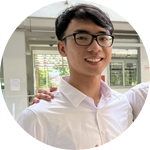About This Project
Tortured phrases, characterized by complex and ambiguous language, obscure authors' real meanings and pose a growing threat to scholarly credibility. For instance, "counterfeit neural organizations" instead of "Artificial Neural Networks" and "portrayal learning" instead of "representation learning." To counter this issue, we will analyze 15,000 articles, investigating how tortured phrases correlate with article retractions, author ethics, and their impact on publishers and institutions.
Ask the Scientists
Join The DiscussionWhat is the context of this research?
While investigating various research papers, we encountered tortured phrases that challenged our understanding. For example, in an article in 2021, we read the sentence: "The secret segments move dependent upon the disease. Coronary vein disease, stroke, and periphery supply course ailment incorporate atherosclerosis." Upon further examination, we realized the intended statement was: "The underlying mechanisms vary depending on the disease. Coronary artery disease, stroke, and peripheral artery disease involve atherosclerosis." These sentences made us struggle to grasp the author's intended meaning. So, we aim to understand their impact on scholarly credibility, retractions, ethical concerns, and the reputation of publishers and institutions.
What is the significance of this project?
Our project holds significant implications for scholarly research and communication, prioritizing clarity and transparency in scientific literature. We seek to enhance comprehension among peers and the public by addressing the challenge of tortured phrases and complex language. Through meticulous analysis of 15,000 articles, we plan to identify and replace tortured phrases, collaborating with authors, publishers, and institutions for meaningful change. By establishing guidelines and encouraging a cultural shift towards more explicit language, our work aims to transform scholarly communication, elevating accessibility and the impact of scientific knowledge for a lasting effect.
What are the goals of the project?
We will use the fund to pay for server services, training model processes, students, and volunteers. We will follow four specific steps, including gathering preprints from Research Square, ArXiv, & PubMed using Talbots. We then identify & quantify tortured phrases by calculating the ratio of tortured phrases to total pages. Thirdly, identify other quality metrics (Interest Score, Citation, & Altmetric index) to evaluate the preprint quality. Finally, analyze the ratio of tortured phrases to the quality score to check how their quality is affected by the presence or absence of tortured phrases. Computer Science, Engineering, & Education are our fields of expertise, so we only focus on them in this research. We will share our findings with the community through publication on ArXiv.
Budget
We have completed Phase 1 of our research with approximately $3,500 from the personal funds of our leader. The outcome of this phase has been the development of basic features for the Talbots platform. Our manuscript has been submitted to a journal and is currently under review. Now, we have depleted our funding resources and are even encountering challenges in sustaining the FREE Talbots platform for the user community.
The budget presented here is allocated towards maintaining the Talbots platform and completing the research over the next six months. Our desired outcome is a comprehensive report on tortured phrases in 15,000 scientific literature. We plan to publish it on arXiv, making it easily accessible for everyone interested.
Our ultimate goal is consistently keeping the Talbots platform FREE for the community. Simultaneously, we pledge to maintain a real-time list of sponsors on our project's website (https://talbots.ai/sponsors) to express gratitude towards them.
Endorsed by
 Project Timeline
Project Timeline
We outline a carefully structured plan for distinct phases, such as Phase 1 (one month), which focuses on updating the Talbots Library on the PyPi Platform. Phase 2 (one month) involves refining and deploying the Talbots Website. Phase 3 (two months) collects data via the Talbots website. Phase 4 (1.5 months) involves processing and analyzing the accumulated data. Lastly, Phase 5 (0.5 months) centers on composing and submitting a scholarly manuscript on arXiv.
Oct 25, 2023
Project Launched
Nov 30, 2023
Updating the Talbots Library on the PyPi Platform.
Dec 31, 2023
Correcting and Deploying the Talbots Website.
Mar 06, 2024
Collecting the Data with Talbots website.
Apr 17, 2024
Processing and Analyzing the Data.
Meet the Team
Tan H. Nguyen
Hello everyone
I'm Tan H. Nguyen, an experienced researcher with almost a decade of hands-on engagement in AI and its applications. My journey spans roles at FPT Education Organization, FPT Telecom, and volunteering at the Vietnam Ministry of Health. My focus areas include algorithms, computer vision, natural language processing, and robotics.
I'm currently pursuing my second Bachelor's degree at the University of the People. I've contributed to impactful research projects, from image processing to co-authoring textbooks and translating "Think Python: How to Think Like a Computer Scientist" into Vietnamese.
Noteworthy accomplishments include recognition at the National Youth Creativity Festival in 2015 and consecutive Dean's List and President's List placements (2021-2023) at UoPeople.
Experiment.com is my gateway to share my research endeavors with the wider scientific community. Through this platform, I aim to foster connections, learn from fellow researchers, and collectively propel the frontiers of science and technology.
Explore with me on Experiment.com. Learn more about me on LinkedIn: https://www.linkedin.com/in/ta...
Best regards,
Tan H. Nguyen
Additional Information
To know more information about our research, please don't hesitate to access the following link:
1. Talbots website: https://talbots.ai/
2. Head of Research Team: https://www.linkedin.com/in/tan-h-nguyen-b59539253/
Project Backers
- 8Backers
- 4%Funded
- $311Total Donations
- $38.88Average Donation




